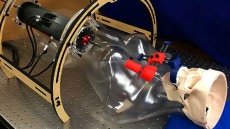Despite owning a smartphone or computer with daily internet access, only a small number of older adults actually use them as tools to better manage Type 2 diabetes, shows a study.
"It may be that older adults are unaware of apps available, they had low confidence about using them regularly, or both," said lead author Kathleen Dobson from University of Waterloo in Canada.
The researchers found that although more than 90 percent of research participants owned a computer or had daily internet access, just 18 percent used applications on this technology to help manage their diabetes.
While almost half owned smartphones, only five percent used them to manage their disease.
"There was a strong association between age and confidence and confidence about technology use really dropped off in the oldest age groups," said senior author Peter Hall, professor at University of Waterloo.
"This drop in confidence was mirrored by a corresponding drop in intentions to use the technology in the near future," Hall said.
In diabetes management, technology can provide platforms for glucose logs, dietary and physical activity journals and create opportunities for scheduled prompting or interventions.
"Successful diabetes management improves quality of life, reduces risk of complications and generally extends life expectancy," Hall stressed.
The study appeared in the Journal of Diabetes Science and Technology.





